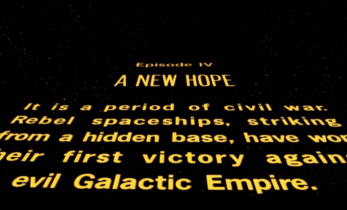Greater than 2 minutes, my friend!
How cryptic crosswords made me a better translator
1a After I missed practice, lambasted for altered language (10)
2d Sane gulag? Messed up, so to speak (9)
5a The average English dissertation has grammatical symbols (11)
(Answers can be found over on my blog, or, if you can puzzle them out yourself then I’d love to hear your answers on Twitter)
I’ve always loved word puzzles. For about as long as I can remember I have enjoyed sitting down with a crossword and a pen – there’s something about it which is just so relaxing to me. Several years ago, while studying for my Translation Master’s degree, I made my first forays into the world of cryptic crosswords. This was pretty challenging at first: the steep learning curve made them more frustrating than relaxing! Once conquered though, I’ve found that there is so much fun to be had and satisfaction to be gained from these little linguistic brainteasers.
But is there a benefit that translators can gain from these exercises? (Other than just a way to unwind?)
I certainly think so!
After all, a good translator needs lots of different skills – far beyond just being bilingual. And one such skill is to have an intimate knowledge of their target language (English, in my case) at their fingertips: something that cryptic crosswords also demand. Of course, doing a crossword a week is not going to instantly transform a translator’s work, but anything that deepens a translator’s mastery of their own language can’t be a bad thing.
When decrypting a crossword, every word needs to be prodded and pulled at from virtually every linguistic angle in order to unlock the hidden meaning behind the clues: does this word have many different meanings? Or synonyms? How about homonyms? Is it a noun, verb or adjective? Is it an anagram? Can it be abbreviated? What’s its etymology? Is it playing on a name or title? Or a double entendre?
The words you are unpicking are often obscure, sometimes so obscure that you have to look them up – all the better! You have just learned some new vocabulary, and very possibly stumbled upon a synonymous relationship that you had never considered before.
In essence, the solver is looking for one word (or sometimes a phrase) which, as if by magic, reveals the meaning behind the whole clue.
If you drew up a Venn diagram of the similarities between translation and crossword solving, “the hunt for the right word” would be right at the centre. While translating, I often have to break a difficult sentence down to its basic elements, figure out what makes it tick and then rack my brains for the best way to express it in English. There are plenty of resources at my disposal that help me to do this: my experience, the skills I learnt throughout my training and career, dictionaries and grammatical reference books, discussions with colleagues on online platforms, amongst others.
But sometimes, particularly in projects that require a more creative touch, I find it helpful to think of that difficult sentence as a kind of cryptic clue, which just needs to be looked at from the right angle to reveal its answer.
Ultimately, cryptic crosswords encourage the solver to be playful with their language – a valuable piece of brain training for any translator.
Answers to the clues at the start of this post can be found here





What a nice post Ed! I love finding unusual ways to keep up with languages, and for sure this one looks really great! I will look into it to see if I’m good at it 🙂
Thanks Silvia! Glad you enjoyed : )
Thanks for the tip, Ed! I’ll definitely try it out 🙂